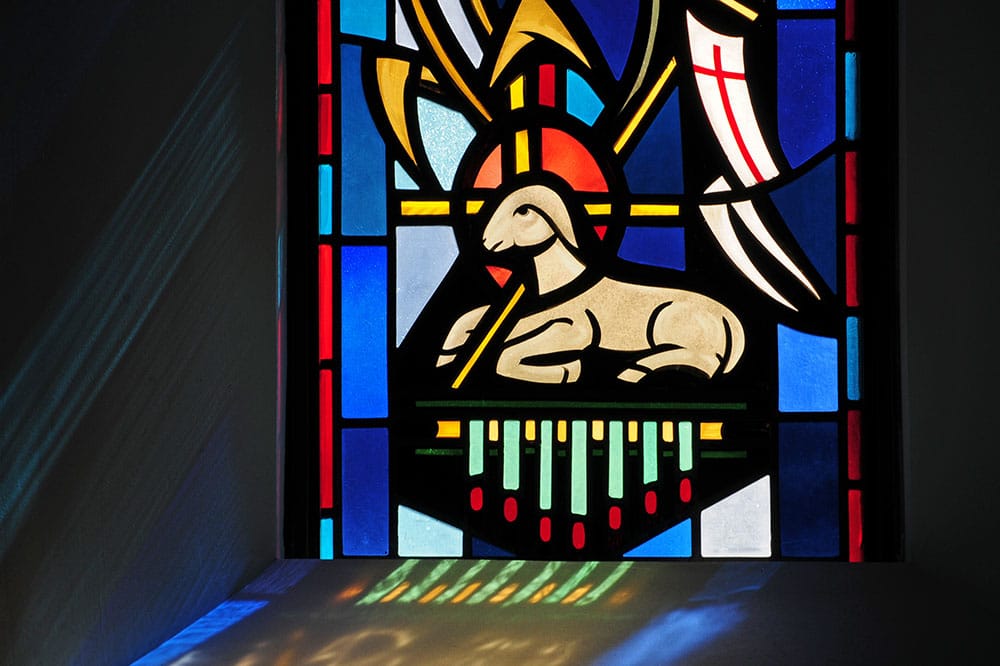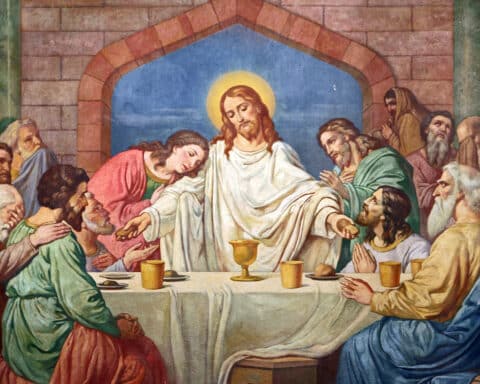
— Name, location withheld
Answer: It would be wrong to say that we, as Christians, do not observe the solemn Jewish feasts at all. These feasts pointed to Christ and are fulfilled by him. The clearest example of this is Passover. Christ Jesus is our Passover (or paschal) lamb, and every Easter we solemnly celebrate that Christ our Passover lamb has been sacrificed, once and for all. We are delivered from death and make our Exodus from the slavery of sin to the glorious freedom of the children of God. So, we do more than celebrate Passover; in Christ, we fulfill it — that is, we partake fully of all that the Passover pointed to. In a certain sense we celebrate it every Sunday, which is a mini-Pasch (or Easter).
As for the Jewish feast of Pentecost (also called the Feast of Weeks, Harvest or Shavuot), we continue to celebrate that as well. While it was essentially a harvest festival celebrating the end of the wheat harvest, it also commemorated the giving of the Law. As Christians we fulfill this feast in that it celebrates the Law being written in our hearts by the Holy Spirit — not just on stone tablets — and the commissioning of the Church to go forth and bring in a mighty harvest. Another major Jewish feast is Yom Kippur, the day of atonement. But here, too, what they looked to and longed for has been fulfilled — not set aside — in Christ who atones for our sins, not just once a year, but once and for all, and this mercy is available every day.
Linguistically, the Hebrew word olam admits many shades of meaning. It could mean “perpetually,” but it can also mean “a long time or duration.” So the meaning isn’t as unambiguous as you may think.
And, we must also remember the teaching of St. Paul: “Let no one, then, pass judgment on you in matters of food and drink or with regard to a festival or new moon or sabbath. These are shadows of things to come; the reality belongs to Christ” (Col 2:16-17). He says something similar in Romans 14.
Further, at the First Council of Jerusalem (cf. Acts 15) the apostles and priests gathered determined that the whole of the Jewish ceremonial Law and traditional observances did not apply to Gentile converts. We must recall that to the Apostles and their successors was granted the power to bind and loose. Jesus had already set some precedents in this regard when he rendered all foods clean (cf. Mk 7:19) and disregarded some of the stricter Sabbath rules about work.
So, we have a threefold argument. First, we are doing more than observing these feasts, we are fulfilling them in Christ. Second, the word olam does not necessarily mean “forever.” And third, that the Church, which now includes Gentiles, has the authority to regulate such observances and discern with Christ what binds from the Old Testament and what no longer applies.
Talking about hell
Question: Other than one Sunday in three years, why don’t I hear the word “hell” in a year’s worth of readings and homilies?
— James Jeson, Milwaukee
Answer: This is not an accurate assessment of the Liturgical readings. Twenty-one of Jesus’ 38 parables are warnings about judgment and hell, and most of them are read on Sundays through the year. Further, in November and December, the readings are focused on the end times and are replete with warnings by Jesus and the prophets of coming ruin for disobeying Christ and acting unfaithfully. Sometimes words like Gehenna, everlasting punishment, flames, etc., are used instead of the word hell. But Jesus spoke a lot about judgment and hell, and it is certainly reflected in the Lectionary. Sermons on the last things are surely important, and priests ought not neglect to urge the faithful to be sober about their coming judgment.
Msgr. Charles Pope is the pastor of Holy Comforter-St. Cyprian in Washington, D.C., and writes for the Archdiocese of Washington, D.C. at blog.adw.org. Send questions to msgrpope@osv.com.





